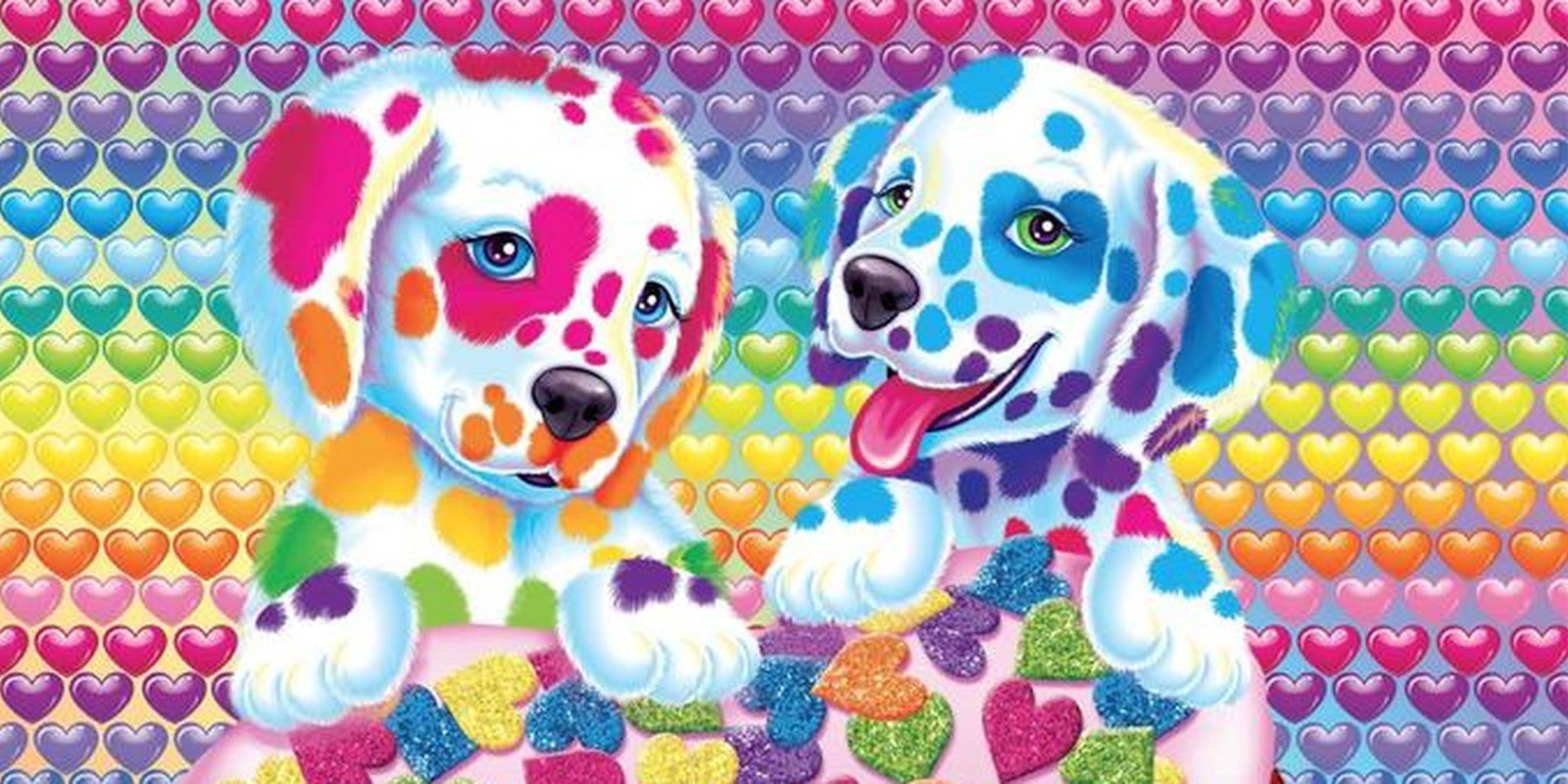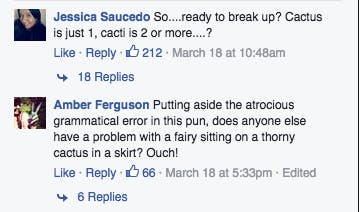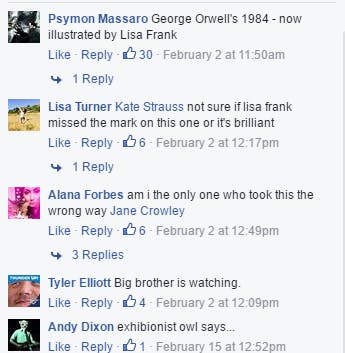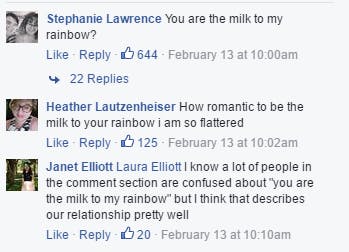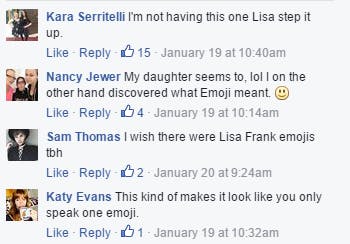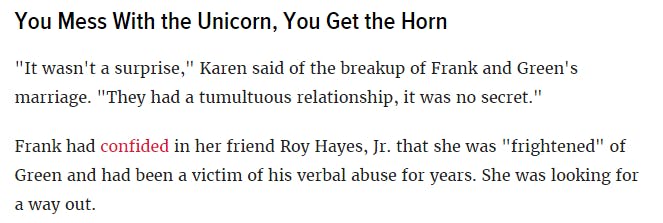About a year ago, the official Lisa Frank Facebook page began posting classicly-inspired Lisa Frank images overlain with text.
In what appears to be an attempt to cater to the meme-loving internet masses, Lisa Frank’s new memes feature some of the same characters we’ve seen in the past—but with the added benefit of more context. I grew up with Lisa Frank, so it’s not without some nostalgia that I approach her work and especially these newer memes. If her smiling rainbow puppies and dolphins didn’t speak for themselves before, you now have the option of viewing them through the lens of Lisa Frank-approved adages, many of which don’t seem to appeal to children as much as to her original fans.
Mostly, this new information falls in line with what we might have conceived of Lisa Frank. Generally, the memes are of a positive nature; they try to lift their audience up, make them laugh, make them smile. These posts aren’t all juvenile, though, despite images filled with colorfully anthropomorphic animals. Some indulge in what might be considered female stereotyping: love of shoes, shopping, and sweets. A marriage of the substance of a Cathy comic strip with the aesthetic of Lisa Frank.
My favorite posts, though, are the ones that make no sense, the graphics and text muddled, the execution appearing to be rushed. And fans are sure to point out these technicalities.
If you sense a hint of the sardonic in some of these memes, then perhaps that could be attributed to Lisa Frank Inc,’s sordid past, alluded to first by the Arizona Daily Star in June 2013 and then more extensively documented by Jezebel later that same year. “Inside the Rainbow Gulag: The Technicolor Rise and Fall of Lisa Frank” describes the abuses perpetuated by Lisa Frank Inc. management in the ’90s and ’00s, which was comprised of Frank, Frank’s ex-husband James Green, and partner Rhonda Rowlette (though the piece mainly implicates the latter two in more of the extreme behavior as relayed by former employers of LFI).
After catching up on this fraught history, it’s difficult not to see these memes as a creative response to this investigative reporting, which came to light after Urban Outfitters produced a short video about the Lisa Frank warehouse in 2012—featuring a disguised Frank.
In May 2015, the Lisa Frank page began posting its new meme-style art. A few months later, Foundations Magazine published another artist’s interview with Frank. And in November 2015, Great Big Story produced a short video similar to Urban Outfitters’ in length and content, but introduced with Frank’s voice (we still don’t see her face), dismissing the idea that she’s a drug addict—an allegation that was never made by Jezebel or the Arizona Daily Star, though the former did discuss rumors of drug use supposedly prevalent among former employees.
Considering the facts, there is little reason to doubt that these memes have risen from the ashes of a less-than-sparkling public image in an effort to remind fans that the company still exists and thrives—that is, if you consider posting a new image to Facebook every day a measure of success.
My in-depth survey of these memes reveals that many of them pit concepts against each other—a very “I’m better than you” vibe dominates, which isn’t such a big deal on its surface, but when you understand the history from which these memes speak, you could see them as a form of shade.
Take, for instance, the following memes, which appear pretty harmless with only a surface-level understanding of the images/text.
Are these memes a defensive response to the evidence that the company is no longer the financially thriving, billion-dollar corporation it used to be? Interestingly, one employs nearly the exact language of one of the subheadlines in Jezebel’s article (published two years before the meme).
Considering the brand’s obsession with unicorns, this could definitely be a coincidence. But when shown alongside other memes, the sense that this content may have emerged from a particularly tarnished reputation and a bout of negative publicity becomes more pronounced.
As a brand identity, Lisa Frank lives outside reality. Maybe the business did, too. These memes mix the images of childhood with concerns and clichés of adulthood, though sometimes not very well, and perhaps this is also indicative of LFI’s problems and the evidence that the owners treated their employees like children. There was seemingly no maturity at the top of the corporation. With Frank now occupying the sole executive position at LFI and apparently only employing a handful of people (the company currently just manages the licensing of images and is no longer involved with the manufacturing of products), an attempt to reconcile the company’s past transgressions with a more favorable, and trendy, public image could be an honorable idea. Through these memes, which are effectively the company’s sole product, they might be owning up to the fact that LFI is not all puppies and rainbows, either figuratively or literally, and that imperfect, misguided adults are behind the scenes. Maybe they have come to embrace the imperfection that is currently a transparent part of the brand’s overall footprint.
But, of course, this approach is not without its art critics.
And, at the very least, if these memes are to be taken at face value, it seems that LFI has learned some lessons along the way.
More than anything, though, I am excited to see how the company continues to evolve these posts as a fresh face of the Meme Industrial Complex. For example, the page just recently posted this mildly out-of-place Lichtenstein-inspired image, balancing pop despair with the signature care-free rainbow aesthetic and a nod to the saccharine:
Maybe I’m reading too much into corporate Facebook memes, but since learning about the company’s distressed past, which I only discovered while writing this piece, my approach to the brand and its content has dramatically changed. Lisa Frank is not all fun and games, not necessarily the bright and welcome respite from the aggression and psychological turmoil of 2016 that it previously embodied for me. As we are reminded time and time again, nothing is pure or sacred (except maybe the Simply Garfield Group Facebook page). The simple fancies of childhood reveal their true and complex forms once more. No rainbow leopard or unicorn anywhere will ever make this lesson any easier to learn.

